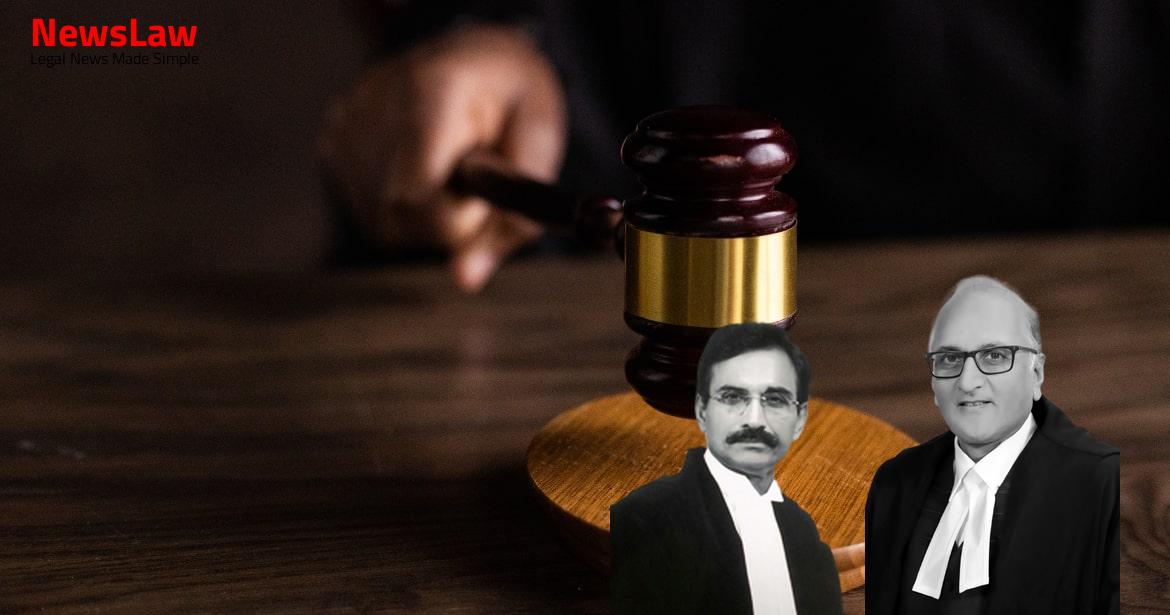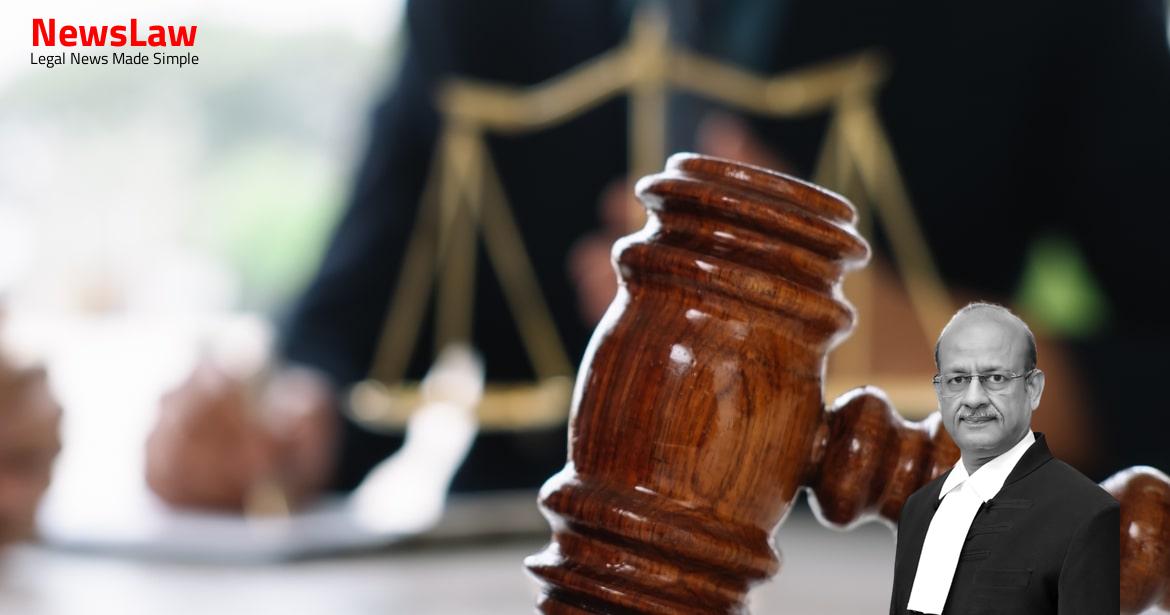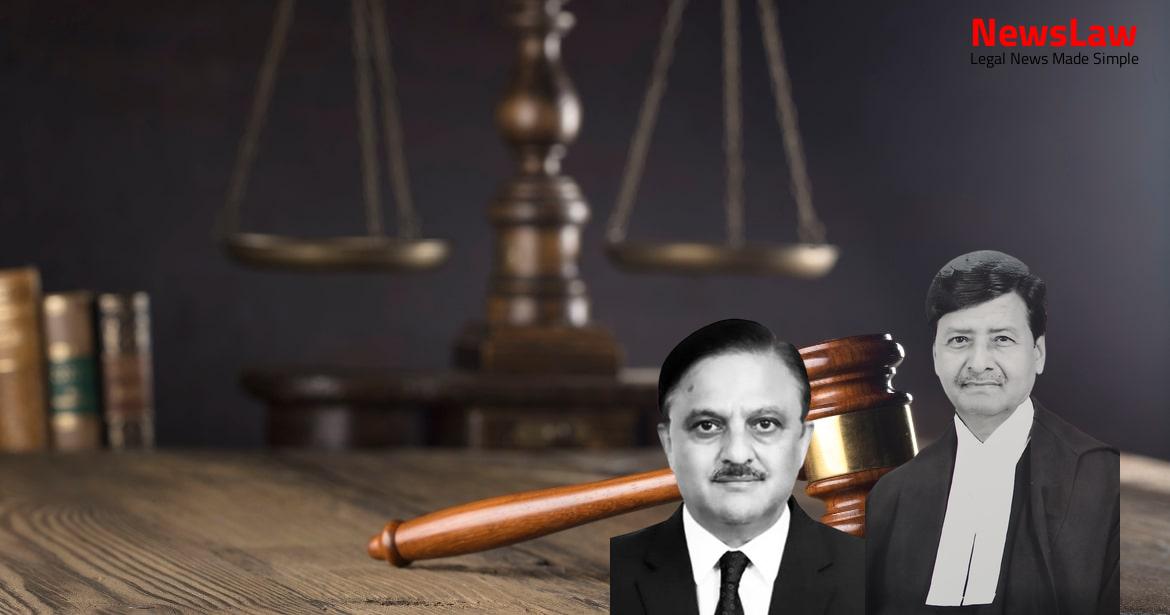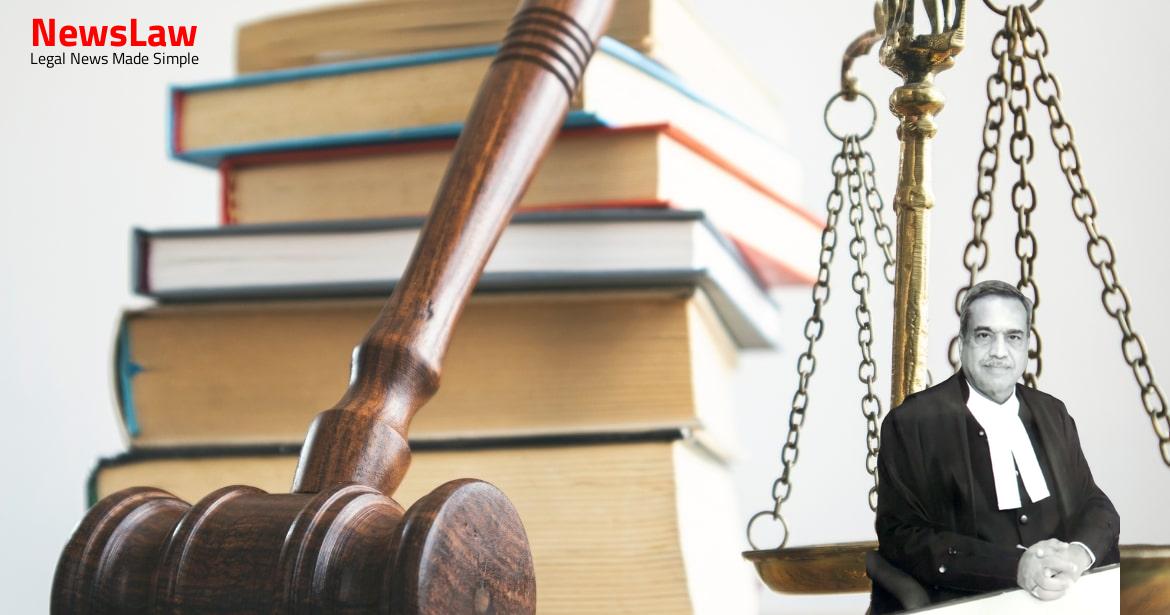Explore the critical legal analysis conducted by the court in a recent judgment concerning allegations of terror funding. The court meticulously examined the evidence presented, emphasizing the distinction between being ‘not guilty’ and ‘prima facie true’ of the alleged offenses. Delve into the parameters for establishing complicity in terror financing, as discussed in key precedents. Stay tuned to unravel the complexities of legal scrutiny in cases involving allegations of supporting terrorist organizations.
Facts
- The Appellant is accused of committing various offences under the IPC, UAPA, Arms Act, and CLA Act.
- An amount of Rs. 9,95,000 was seized from his residential premises.
- The charge-sheet mentions the extortion of money by TPC members from businessmen in coal mining areas.
- The NIA submitted a supplementary charge-sheet detailing the modus operandi of collecting levy and obstructing coal transport.
- The Appellant stated that he was contacted by Subhan Miyan for payment to ensure the smooth functioning of his transport company.
- He admitted to meeting with TPC leaders and making substantial payments to them.
- An inference was drawn that the Appellant colluded with TPC members in a criminal conspiracy to raise funds for the terrorist gang.
- A complaint led to the registration of an FIR against the Appellant and others for various offences.
- The NIA was directed to investigate the case due to the severity of the offences.
- The Appellant’s statement was recorded under Section 164 Cr.PC during the investigation.
- His bail application was rejected by the special court despite his claims of being forced to pay the levy.
- A second supplementary charge-sheet filed in 2020 listed the Appellant as A-19 and implicated him in coal transportation activities on behalf of specific companies.
- Accusations against the Appellant are prima facie made out disentitling the Appellant for grant of bail.
- The High Court concluded that it is a case of terror funding.
- The Special Court was convinced that the Appellant had paid a huge amount of money to members of the terrorist organization.
- The appeal against the judgment of the special court was dismissed by the High Court on 24.06.2020.
- The Appellant’s admissions of paying extortion money led to the conclusion that he contributed to funding the terrorist organization.
- The High Court observed that there is material on record showing that the Appellant was in constant touch with the members of the terrorist organization to run his business.
Also Read: Legal Analysis on Seniority Fixation in Contempt Petitions
Arguments
- The Appellant’s actions were deemed to have provided financial support to TPC, a terrorist organization, as per the prosecution.
- The prosecution claimed that the Appellant’s payment to TPC constituted raising funds for a terrorist organization.
- The Appellant’s close contact with members of TPC was cited as evidence of his involvement with the terrorist gang.
- The prosecution argued that the Act’s Section 17, 18, and 21 offenses were committed by the Appellant.
- The Appellant’s defense stated that the payment made to TPC was solely to protect his business and not intended for funding terrorism.
- The Appellant is not a member of TPC and cannot be accused of terror funding.
- The Appellant had to meet the demands of the terrorist organization to ensure smooth transportation of coal.
Also Read: Interpretation of Section 80-IA Deductions
Analysis
- The main accusation against the Appellant is paying levy/extortion amount to the terrorist organization.
- The Appellant met with the members of the organization regarding payments made by him.
- An amount of Rs. 9,95,000 was seized from the Appellant’s house, which he accounted for as funds for paying salaries and expenses, not terror funds.
- No allegation that the Appellant was receiving money; instead, he provided money to the members of TPC.
- Prima facie case of conspiracy not made out solely based on the Appellant meeting the members of the organization.
- Court not satisfied that a prima facie case has been made out against the Appellant for the alleged offenses.
- Special enactments such as TADA, MCOCA, and the Narcotic Drugs and Psychotropic Substances Act, 1985 require the Court to record its opinion that there are reasonable grounds for believing the accused is ‘not guilty’ of the alleged offense.
- Difference in satisfaction to be recorded by the Court for ‘not guilty’ and ‘prima facie true’ under the 1967 Act is noted.
- The expression ‘prima facie true’ implies that evidence provided by the investigating agency must prevail until contradicted or disproved, showing the accused’s complicity in the offense.
- The evidence must be sufficient and good on its face to establish the facts unless rebutted or contradicted.
- Parameters for the power under Section 43(5) D were discussed in National Investigation Agency v. Zahoor Ahmad Shah Watali.
Also Read: Judicial Analysis on Selection Process
Case Title: SUDESH KEDIA Vs. UNION OF INDIA (2021 INSC 245)
Case Number: Crl.A. No.-000314-000315 / 2021



